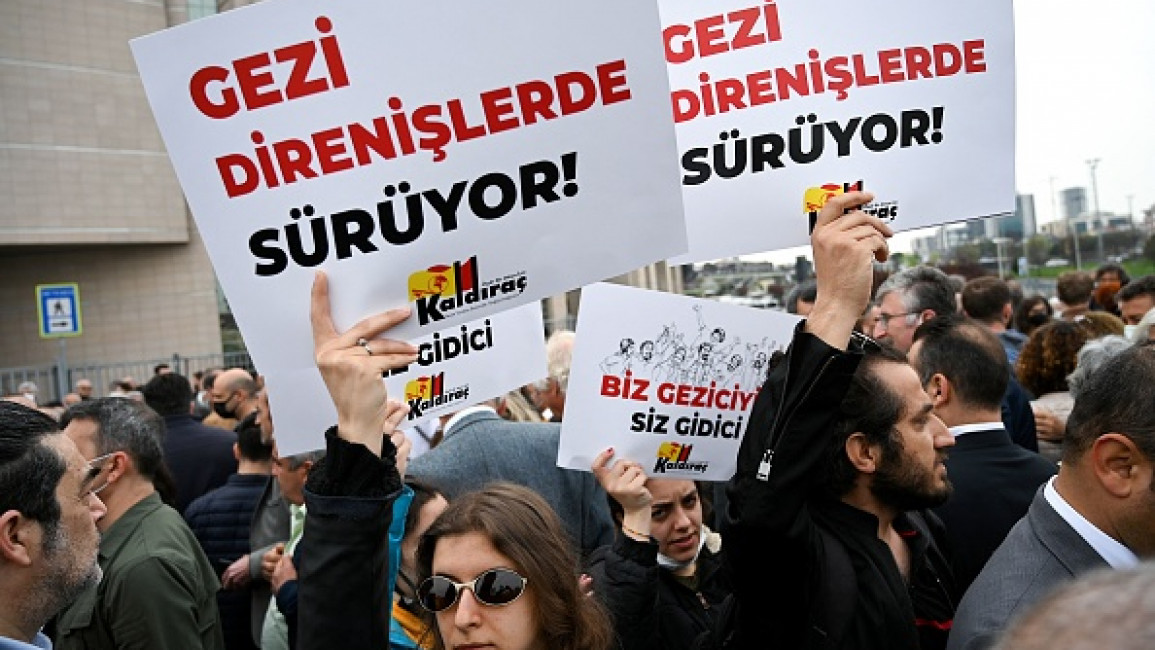Osman Kavala: Turkey's jailed rights defender makes final freedom appeal before verdict
One of Turkey's most famous prisoners made his final appeal for freedom on Friday, at the culmination of a years-long trial that has come to define Ankara's tense ties with Western allies in the wake of a failed 2016 coup.
Paris-born activist and philanthropist Osman Kavala was a relative unknown when he was detained on his arrival at Istanbul's airport from a trip to a cultural centre in the Turkish city of Gaziantep in October 2017.
But his continued imprisonment without a conviction has turned the 64-year-old into a hero for President Recep Tayyip Erdogan's opponents- and a focus of Western worries about the Turkish leader's comprehensive crackdown on dissent.
Prosecutors want Kavala found guilty of "attempting to overthrow" Erdogan's socially conservative government by financing a wave of 2013 protests and then being directly involved in the coup plot.
The verdict and sentence, expected to be issued by a panel of three judges on Monday, could see Kavala jailed for life without the possibility of parole if found guilty.
The marathon trial has been faithfully attended by Western diplomats, underscoring the continued importance of rights issues in their relations with Turkey, a strategic member of the NATO defence alliance.
"The fact that I have spent 4.5 years of my life in prison is a loss that cannot be compensated," Kavala told the court a closing statement issued by video link from his high-security prison outside Istanbul.
"The only thing that would console me is the possibility that what I have gone through helps to put an end to grave judicial mistakes."
Kavala was acquitted of the first count linked to the 2013 protests in February 2020.
But he was detained before he had a chance to return home and then charged with the coup attempt the same night.
Kavala is now facing both charges in a trial that looks back on some of the most turbulent years of Erdogan's dominant 20-year rule.
The Turkish leader has made no secret of his personal enmity for Kavala.
Erdogan calls Kavala a communist agent of the Hungarian-born US philanthropist George Soros who is allegedly using foreign money to try and topple the state.
"We can never be together with people like Kavala," Erdogan declared in 2020.
But Kavala's treatment has prompted the Council of Europe to launch disciplinary proceedings against Turkey that could ultimately see Ankara's membership suspended in the continent's main human rights organisation.
Kavala is being tried with 16 other defendants implicated in the 2013 protests.
Nine of them currently live abroad while the remaining seven took turns on Friday to make their final statements in court.
Defendant Mucella Yapici- also facing the threat of life in jail without the possibility of parole- told the court the 2013 protests were the "most democratic, most creative and peaceful collective movement in this country's history".
Human rights advocates say Kavala's release would send a signal to Turkey's Western allies that its justice system is free from Erdogan's pressure.
"His unconditional release may mark a turning point in de-politicisation of judicial prosecutions in Turkey," Amnesty International's Turkey researcher Guney Yildiz told AFP.
"That's why the result of the emblematic case is quite serious."
Emma Sinclair-Webb of Human Rights Watch called the entire hearing a "show trial".
But Erdogan has seethed at the international publicity and condemnation generated by the case.
The tensions nearly caused an all-out diplomatic war when the United States and nine other Western embassies issued a joint letter of support for Kavala last October.
Media reports said Erdogan's advisers managed to convince him to walk back on his threat to expel the 10 countries' ambassadors after being briefed on the harm this might do to Turkey's investment climate.



